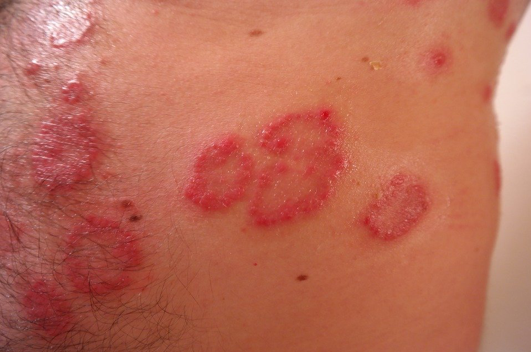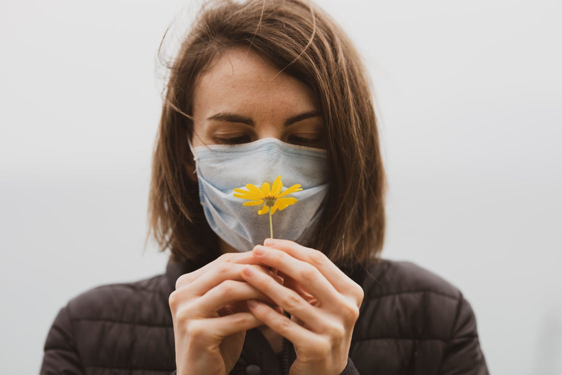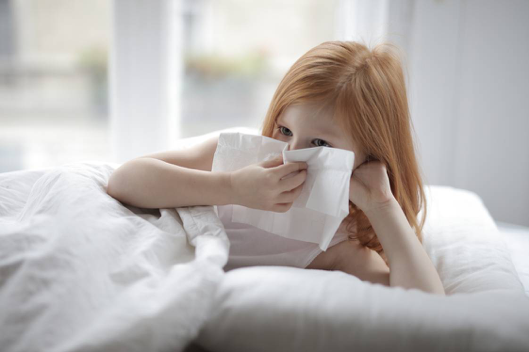Monthly Archives: February 2021
What Causes Allergic Reactions On Skin?
What are the causes of allergic reactions on your skin? The body has a complex immune system. When the immune system works fine, the cells responsible for immunity will defend you from toxic substances and alert you about the threat. However, when your body’s immune system doesn’t work correctly due to a disease or in normal condition, your immune cells will consider certain substances to be a threat and initiate a reaction. These substances are allergens.
You may react to allergens by consuming, touching, or breathing certain substances, leading to reactions on the skin. According to AAAAI or American Academy of Allergy, Asthma and Immunology, 50 million people suffer from one or another allergic condition in the US. An immunologist can use triggering allergens to test how you react to various substances. They will inject allergens in your body to see a reaction. Then, they diagnose you with an allergy. Furthermore, they also use various allergens for treatment.

(Source)
Causes of Allergic Reactions on Skin
Our body’s skin acts as a defense mechanism and keeps any threats from entering the body. Human skin contains various special cells that provide immunity and protect the skin and the body from viruses, bacteria, and other dangerous pathogens.
When our skin detects an unknown substance that might cause a threat, they react and inflame the infected area. This inflammation is dermatitis or a rash, which can lead to itching and sore.
The reaction depends on the immune cells, the substance, and how they react to something. Sometimes, your infection or health condition leads to allergies. Rashes can be of various types. You may experience irritation, patches or blisters, redness or pain in the infected area. Itchiness can be of various types. It may occur in a specific region or all over the body and can be a symptom of various conditions. Here are some causes of allergic reactions:
1. Nickel
Various items have nickel construction, such as cutlery and jewelry. Nonetheless, many people experience an allergic reaction to this material. When they come into contact with the material, their skin starts to rash and turn red and itchy. You are prone to this allergy if you work as a house cleaner, caterer, retail clerk, hairstylist, or your tasks include interacting with various metal items.
This allergy is non-treatable. Of course, you need to avoid any contact with this material if you know or experience any reaction towards it. If you want to wear nickel-based accessories, add a layer of nail paint to create a barrier between your skin and nickel, avoiding direct interactions.
2. Poison Sumac, Oak, and Ivy
Oil from these plants is very reactive to the skin. The leaves release the oil, urushiol when they suffer from bruising or damage. When your skin comes in contact with the oil, it initiates an allergic reaction by turning itchy and red. Urushiol will cause blisters, bumps, and rashes. You can treat the reaction in various ways. For instance, you can apply a wet cloth, oatmeal bath, hydrocortisone cream, and calamine lotion. However, you should visit the immunologist immediately before the condition gets worse.
3. Medications
You may have noticed that after taking various medications, you experience itchy skin and rashes all over your body. Itchiness and rashes are a result of skin allergic reactions. Some ointments can lead to symptoms like itchiness as well. The allergic reaction indicates that the ingredients are not suitable for your skin type or your allergic condition. Hence, you need to consult an immunologist to determine what items and materials you are allergic to.

(Source)
4. Fragrances
Fragrances are the main components of deodorant, cologne, and perfume. You use such products to conceal unpleasant smells. You can also find this product in soaps and other skincare products. You may find difficulty choosing a product when you have a fragrance allergy, as most products do not include fragrance as an ingredient. Companies even add a small quantity of fragrance in unscented products. Physical therapists and massage therapists are more likely to develop skin allergy to fragrance as they consistently use products containing fragrance.
5. Preservatives
Various ingredients in beauty products are reactive to your skin. Two examples are formaldehydeparabens and releaser. Although these products make the product long-lasting, your skin may be reactive to these products. These products usually present in the following items with the names quaternion-15, PABA, isothiazolinone, Diazolidinyl urea, bromonitropropane:
- Stickers and fake tattoos
- Cosmetic items
- Hair dye
- Sunscreens
- Moisturizers and lotions
- Shampoos and conditioners.
Before buying products, always check the ingredients. If you are not allergic to these types of preservatives, you can rely on these products naturally.
Causes of Allergic Reactions on Skin: Conclusion
Allergists & immunologists have education and practice in handling conditions related to the immune system, such as allergic reactions. They can diagnose you and check for which items trigger an immune response and lead to skin reactions.
Are you looking for a top immunologist in New York City? If so, give us a call at 212-319-5282. Visit Dr. Boyan Hadjiev, better known as Dr. Sneeze, for a consultation on treating & controlling the allergic reaction on your skin.
Boyan Hadjiev, MD
30 East 40th Street
Suite 1200
New York, NY 10016
212-319-5282
Sources
https://www.healthline.com/health/allergies/allergic-reaction#causes
https://www.webmd.com/allergies/skin-allergies-causes
https://www.medicalnewstoday.com/articles/311473#causes
What Are Immunologists?
Have you wondered what immunologists are and do? Immunology involves studying the immune system and its process of protecting the body from various infections and viruses. The immune system provides essential defensive capabilities. An active immune system functions automatically and eliminates any external element that is a threat to the body. If your immune system doesn’t work properly, you are prone to various diseases. Scientists and immunologists research how our body mechanisms protect us from new diseases and how you can improve your immune system.

(Source)
What do Immunologists do?
Immunologists help diagnose and treat allergies and other diseases related to the immune system. When your immune system overreacts or doesn’t work properly, an immunologist can help you maintain the system.
If you are suffering from allergies, you need to consider visiting and consulting an immunologist. Allergies occur when your immune system reacts to substances that are not harmful, thinking that they’re a threat.
What is an Immune System
The immune system provides protection from various pathogens and harmful substances that can cause a disease or allergy. Some of the most common pathogens that the immune system provides protection against include viruses and bacteria, which can cause infections. The immune system involves cellular and molecular activities. Your body contains two types of immunity. The first is innate immunity, which is the first line of defense, and adaptive immunity, which is the second line of defense.
Conditions that Immunologist can Treat
Below, you will find some conditions related to the immune system that Immunologist can treat:
1. Allergic Rhinitis
In this condition, you may experience an allergic reaction affecting your airways and nose. Allergic Rhinitis will cause inflammation to the regions of your body that are part of the breathing process. Another name for this condition is hay fever, which is a common condition. The symptoms of this condition also include sneezing, itchy or stuffy nose, etc. This occurs when your body overreacts to an allergen.
2. Allergic Conjunctivitis
When you are in contact with allergens in this condition, you will experience inflammation around your eyes. You will feel itching, redness, tearing, and swelling of the eyes. Another name for the condition is a pink eye, and it is the result of a bacteria or a virus.
3. Asthma
Asthma is a chronic condition and can be fatal. In this condition, you may find it difficult to breathe. In this condition, your airway swells and produces excessive amounts of mucus. The narrow airways lead to impossible or difficulty in breathing. You will also experience a whistling sound, triggering cough and tightness of the chest.

(Source)
4. Anaphylaxis
This is another condition related to a breathing disorder. This condition is also fatal, and other symptoms include vomiting and low blood pressure. Stings from various insects, foods, latex, and medications can cause Anaphylaxis. Many people are also allergic to peanut butter and berries. After encountering these allergens, your immune system will release large amounts of chemicals that lead to a shock. To minimize the symptoms, doctors prescribe Injectable epinephrine to people with allergies. Whenever they encounter the allergen, they use the epi-pen to avoid symptoms.
5. Atopic Dermatitis
With this allergic reaction, you may experience itchy and red skin with rashes. Sometimes, this condition can lead to hay fever or asthma. Moreover, medical professionals and researchers have yet to develop a cure for this condition. This eczema-type condition usually affects children, and its triggers include food and environmental conditions. This is a chronic condition, and the reaction can grow worse over time. Other symptoms of atopic dermatitis are sweating, a rise in body temperature, stress, and irritation. Various treatments and avoiding allergic substances can lower the risk of developing such a condition.
6. Urticaria
People also know this allergic condition as hives. This occurs when your body comes into contact with medication or food allergens. Your skin will turn red and itchy. You may also develop welts through various environmental allergens. Chronic urticarial will remain for around six weeks.
7. Eosinophilic Esophagitis
This is a chronic disorder of the immune system. In this condition, white blood cells build up in your food pipe or esophagus, causing tissue damage and chronic inflammation.
Immunologists: Conclusion
An immunologist can treat, manage, and diagnose all the above-mentioned conditions. Besides, they can help with your allergic reactions and other immunodeficiency conditions as well. Immunologists also develop new treatments and tests to help your immune system work normally by combining their academic research and clinical experience. They are also involved in research and analysis other than treating conditions related to the immune system.
If you are suffering from an immune system related condition, or are experiencing any of the symptoms of the above-mentioned conditions, visit our clinic.
Allergy specialist Dr. Boyan Hadjiev will diagnose your condition and devise a treatment plan. His extensive experience and understanding of the field allows him to offer the best suited treatments.
Contact us at 212-319-5282 or fill out a contact form.
Sources
https://www.immunology.org/public-information/what-is-immunology
https://www.medicalnewstoday.com/articles/what-is-an-immunologist
Serving all of New York City and the Tri State Area including Zip Codes: Top Allergist NYC Midtown, Chelsea and Clinton: 10001, 10011, 10018, 10019, 10020, 10036 | Gramercy Park and Murray Hill: 10010, 10016, 10017, 10022 | Greenwich Village and Soho: 10012, 10013, 10014 | Lower Manhattan: 10004, 10005, 10006, 10007, 10038, 10280 | Lower East Side: 10002, 10003, 10009 | Upper East Side: 10021, 10028, 10044, 10128 | Upper West Side: 10023, 10024, 10025
